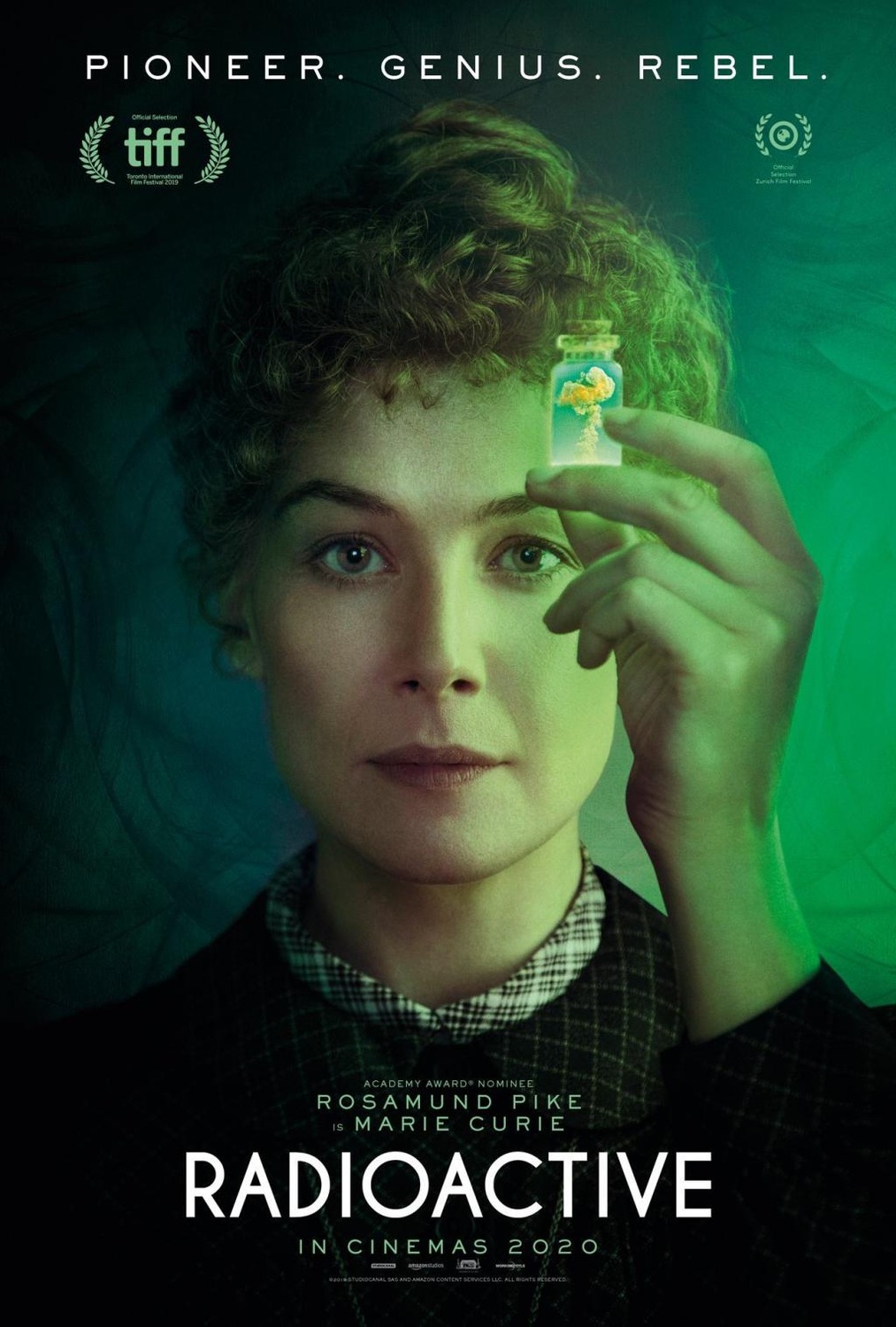After years (heck, decades) of being a “Where have I seen her before?” actor on this side of the Atlantic, Rosamund Pike may now (finally) be getting some of the recognition that she’s long enjoyed in her native England. Perhaps best known Stateside for her Oscar-nominated role in 2014’s Gone Girl, Pike won an Emmy last year for the fantastic State of the Union limited series and has now followed that up with some of the finest work of her career.
Though Amazon’s Radioactive doesn’t quite rise to the level of its central performance, it nevertheless offers a unique and interesting take on the life of the brilliant Marie Curie. Based on Lauren Redniss’s graphic novel Radioactive: Marie & Pierre Curie: A Tale of Love and Fallout, the screenplay by Jack Thorne (Wonder) does give plenty for Pike to sink her teeth into while faltering in its attempt to stitch together any kind of narrative continuity.
Beginning with Curie’s death in 1934 and then flashing back to the notable moments of her life, the film hits all the high points (and most of the low, too), especially devoting of a large amount of time to Curie’s discovery (and naming) of the concept of radiation. Working alongside her husband Pierre (Sam Riley), Curie built upon prior scientific discoveries to blaze new trails of her own, altering the world in the most drastic of ways imaginable.
Presented in flash-forward interstitials, these lynchpin moments are what rob the film of its pacing and narrative. Yes, the discovery of radiation was a game-changer, but director Marjane Satrapi (Persepolis) isn’t content to simply let us connect the dots to the nuclear world of the 20th century; she instead breaks up the fascinating period plot with video snippets of everything from the 1945 atomic bomb blast to the 1986 Chernobyl meltdown. At one point, in fact, the film jump-cuts from Pierre’s tragic death in 1906 to the testing of a hydrogen bomb in the Nevada desert in 1961 and then back to 1911 Paris.
There are also head-scratching times when Radioactive takes on the feel of a sci-fi/fantasy matinee feature and others when it becomes a sordid old-timey soap opera (as Curie has an affair with the married physicist Paul Langevin). And need we even mention the occurrence of the oh-so-tropey Eiffel Tower Effect, wherein every single apartment in Paris offers a stunning view of the famous landmark?
To be sure, as the first person and only woman to be awarded two Nobel Prizes, Curie was a pioneer in chemistry and physics, and Radioactive indeed gives her her due several times over—making a special point of presenting her as the fiercely strong and independent woman she no doubt was. And though the film itself could have used another round of rewrites and edits, Pike’s bravura performance does the woman proud.
Rating
3.5/5 stars
